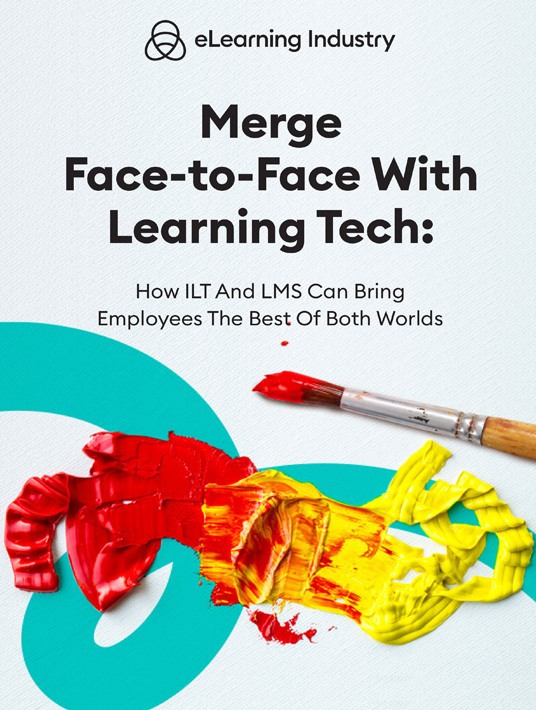Why Employees Find Your Current Instructor-Led Training Uninspiring
Face-to-face training should offer employees everything they’re missing from the eLearning experience. That human interaction with peers and the opportunity to ask questions in real-time. That said, there are plenty of chances to drop the ball and leave learners wanting more. Fortunately, learning technology can help you make a lasting impression and overcome the most common ILT downsides. Before you can address those areas for improvement, you need to diagnose them. Here are 6 reasons why your current ILT training strategy falls short and how you can use an LMS to engage underwhelmed employees.

6 Top Reasons Why Learners Are Left Underwhelmed By Your ILT Strategy
1. Lack Of Personalization
Employees make room in their busy schedules for the ILT session. They mentally prepare, believing that your face-to-face event will address their specific needs. But they walk away from the experience with dashed hopes. It covered topics that they were already familiar with or the delivery methods didn’t align with their preferences. They’re more visual learners, and the instructor lectured for half an hour or didn’t even cover the skills they need to complete their job duties. An employee training LMS offers them personalized support for their roles, tasks, and responsibilities. They can always access simulations or demos via the LMS to fill in the gaps left by the ILT session.
2. Help Arrives Too Late
We’ve all been there, trying to remember every step in the process or struggling to help a customer/coworker overcome the challenge. The ILT course is scheduled for next week, but you need the help now. With ILT and LMS you can give your employees moment of need support immediately. For example, they’re able to access the JIT library to review the task or read real-world examples to see how their peers or instructors have handled similar hurdles. Help is there when it matters before they make the mistake or compromise their on-the-job performance.
3. Limited Progress Tracking
You wouldn’t start up the car and aimlessly drive until you stumble on your destination. The same rule applies to your employees. You can’t expect them to wander through the training program without clear goals and milestones. That’s the fastest way to get lost and miss the L&D objectives by a mile. The trouble with ILT training is that it often lacks personal progress tracking. Employees have a general idea of where they’re heading. But they are unable to see how far they’ve come and what they need to do next—short of the instructor giving them a sneak preview of the next session or outlining the course requirements. When you add a compliance training LMS to the mix, employees can gauge their own progress and plan ahead. For example, access JIT resources to prepare for the health and safety simulation that’s next on the training map.
4. Trainer Doesn’t Meet Their Expectations
It’s not just the curriculum that underwhelms employees. Sometimes, the instructor is the one at fault. They aren’t as involved as employees expect or they simply don’t have the necessary experience. Another issue might be that they treat learners as passive observers instead of training partners. ILT and LMS let instructors take on the role of facilitator. But they can also become more active thanks to online support tools. For example, host an impromptu live event to field questions and share relevant LMS resources. In addition, you can use LMS reports to gather and evaluate employee satisfaction ratings, such as how happy they are with the instructor’s latest course or if their delivery method/approach was beneficial.
5. No Knowledge Refreshers
It’s a proven fact that reinforcing information leads to long-term retention. The human memory is a fickle thing. We forget things minutes (if not seconds) after learning them if we don’t use our mental muscles. This is where knowledge refreshers come into the picture. With ILT training, employees usually review the information once, remember it long enough to pass the test, then move on to the next subject. If you combine ILT with LMS, you have the opportunity to regularly refresh and reinforce mental schemas. Employees combine new ideas with preexisting concepts to strengthen their memory. For example, bite-sized assessments that test COI knowledge or if they’re able to understand how company policies apply to their job position.
6. Lack Of Autonomy
Your ILT session will assuredly underwhelm employees if it forces them to go at the same pace and stifles their growth. Modern employees want to roam free but still have the option to access support tools. Autonomy is the key to unlocking their potential and achieving your compliance training objectives. Allow them to create personal paths and set their own training schedule. Encourage them to set individual goals and identify gaps using the JIT library. Conduct pre-assessments and surveys to help them custom-tailor the experience and then let them tick each item off the list. If they struggle, the peer-based support group and live chats offer them guidance. Plus, they can always reach out to instructors or managers to address problems that are more complex.
Conclusion
ILT training and LMS can work together to help your team work together to achieve common goals. They get the personalized and flexible training they need without having to sacrifice peer-based support. They can also track their progress, journey down self-paced paths, and fill gaps left by ILT sessions. Learning technology doesn’t replace your instructors, it just gives them even more ways to motivate team members.
Leaving employees underwhelmed during your instructor-led compliance training might lead to injuries and penalties. Invest in the best LMS to mitigate risks by using our online directory to do your homework. It also features user reviews so that you get an insider’s perspective and avoid costly mistakes.
Download the eBook Merge Face-To-Face With Learning Tech: How ILT And LMS Can Bring Employees The Best Of Both Worlds to merge modern tech with instructor-led training to achieve your objectives.








